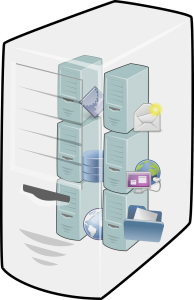Evaluating the services presented by virtual data room providers is not an easy task. Each business offers different alternatives, which makes it difficult to make the comparisons. The following are several factors for recognizing the critical constituents of each organization’s offering, to guarantee that the vendor you select can offer the services you require for business transaction needs.
1. Price
Like the services offered by virtual data room providers differ, so do their cost structures. Spell out exactly what is incorporated in the suggestions you get, such as weekend access and over time. If you require this lengthily in your venture, you may find yourself paying more money for the benefit.
Training and technical support: Some dealers provide a basic level of assistance; however you pay more for additional services.
Getting your documents into the system: You should learn who is accountable for this, and if it is the seller, what amount of data is incorporated into the price. Some service givers charge per page while others per megabyte. If your data is graphically light, a per-megabyte charge is the best for you. If your documents are made of large files, it would be better to pay per page.
A good understanding of what is comprised in the fees is essential to avoid future problems.
2. Enhanced safety

3. Service Levels
An excellent way to know precisely what you receive from the virtual data room providers is to get the service level agreement (SLA) between the vendor and your organization. The SLA must summarize the services during and after the setup. Some vendors offer only technical support, while others provide authentic project management by staff that has in-depth knowledge. Ask about the availability of all the vendor services to decide whether they are provided 24/7, and what the charges will be for overtime attention.
4. Steadiness and repute
It is improbable that you would employ a corporation to look after data storage without inspection of their references. That is not the end of it, still; you also require knowing that prospective virtual data room vendors have strong business backing. You should substantiate that the provider is insured for risks, and determine the corporation’s financial stability. This offers you an assurance that if your venture extends further than the anticipated completion date, you will find yourself changing service providers all of a sudden.
5. Vendor specialty and user friendliness
Because many VDR attributes come standard among the suppliers, it is fundamental to consider which virtual data room has the most intuitive interface and the simplest security settings. It is about more than just passing up headaches: Making a mistake while using your virtual data room can signify information infringes, and depending on the project, an information violation can hurt your company, lead to lawsuits, and create many other predicaments. When selecting your VDR, take some time to find out how other clients have used it, and what the company does apart from offering VDRs.